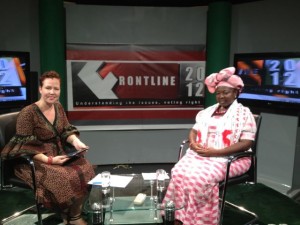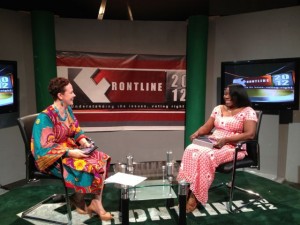Over the last week on Ghana Twitter, we have all forgotten about the corruption in the judiciary and focused our attention on a story involving one of Ghana’s foremost TV-personalities, Nana Aba Anamoah.
What happened was:
- An acquaintance sent Anamoah photos of attending a high-level football game in the UK.
- Anamoah posted the photos on Twitter, indicating that she had been watching the game live.
- The owner of the photos openly questioned Anamoah and accused her of theft.
- Ghana Twitter went wild.
- A letter from TV3 management, suspended Anamoah from work.
My view on this is that this is a historical moment for social media in Ghana. This sector has been seen as not “real”, something that happens outside of work. Hence most media personalities in Ghana have their own personal accounts, powered by their appearance on a legacy media channel, but run solely by themselves without any support, training, equipment, as well as away from attention from their employers.
Anamoah, I believe, is a case in point. Her Twitter account @thenanaaba has of today a whopping 164,400 followers, to be compared with her employer TV3 news @newsontv3, less than half or 62,900 followers. The official account of TV3 @TV3Ghana has only 10,430 followers. Having over 150,000 followers equals power. That makes Anamoah’s Twitter timeline a window for TV3 to a larger extent than maybe she realized. And as my favourite storybook character, Pippi Longstocking, says: “When you are strong, you have to be nice”. It is not particularly nice to post photos that do not belong to you without acknowledgement. It is not ethical to aim to fool your followers.
Not to worry, the media elite of Ghana is all coming to Anamoah’s rescue. The same people who last week were upset about the “lack of morals in our society” are now saying what Anamoah did “was a joke” and that actions against her are ” not proportional”, “unfair”, or maybe even “sexism” as other (male) TV personalities have said worse things on social media without repercussions.
However, not all TV-personalities read the news on the screen, perhaps the most prestigious role in media. Not all TV-personalities have an equal number of followers as a small town. People with power have to be held to higher standards, wasn’t that what we all agreed last week?
To reconnect with my first statement about this making social media history, a number of important questions must be raised, maybe especially in relation to media houses in Ghana. Will you now create social media policies for your employees, “the guardians of your brand” to borrow from the letter? Will you now recognise that social media is a job? Will you educate your employees on social media ethics? Will you engage with your programs’ social media involvement instead of leaving it for individual personalities to pursue? Will you act ethically in all your communication?
For the rest of us: do we post photos that is not ours without acknowledgement? Do we discuss issues responsibly? To we only retweet things we have fact checked?
Note: Anamoah has publicly apologised for her actions.
Update: Marketing professional Nana Yaw Kesse wrote a post on what TV3 should have done and after this morning’s focus on the issue on Ghana’s principal radio shows, I have to give him right. I also learned the statement was read on the TV3 news and filed under “news” on the TV3 website, which seems incredulous as that makes TV3 the first (in news!) to actually make this item news! (When they should be more interested in us all forgetting about it.)





